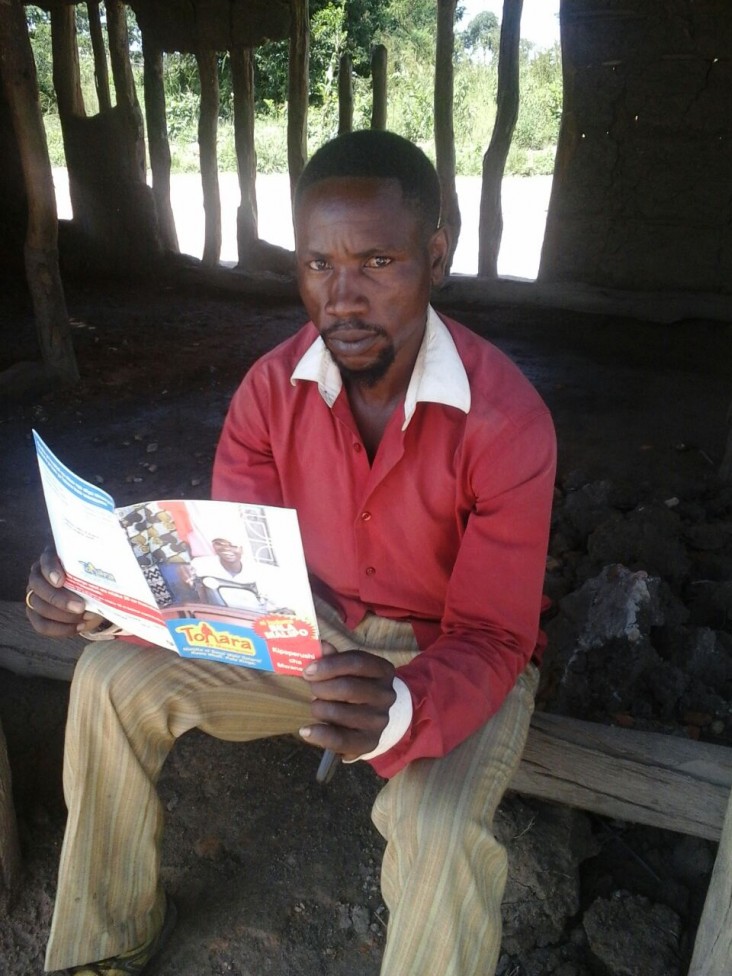
April 2016—As a traditional healer in Ikombaboba village in Tanzania’s Tabora region, Albert Cosmas uses rituals and herbal remedies, learned from his grandfather, to heal people. He doesn't perform male circumcisions—it's not a norm for his community. When he learned that voluntary medical male circumcision (VMMC) services for HIV prevention would soon be available, he never envisioned becoming a VMMC “ambassador.”
Tabora, with its HIV prevalence at 5.1 percent, is one of 12 priority regions in Tanzania’s national VMMC scale-up plan. Research shows that male circumcision reduces HIV transmission in heterosexual men by approximately 60 percent, and is an important HIV prevention measure, especially when combined with other HIV prevention approaches.
The USAID-funded Strengthening High-Impact Interventions for an AIDS-free Generation (AIDSFree) project is working with the Tabora regional health administration to scale up high-quality VMMC services for HIV prevention.
Cosmas initially declined the free service, despite the health benefits. “It was the rumors,” he told Lusepo Kipenya, an AIDSFree peer educator. Word had spread in the village that foreskins were being sent to Freemasons for conducting rituals.
“The Freemason rumor was very strong and stubborn,” said Kipenya.
Thus, the program used creative approaches to dispel the rumor and increase demand. Peer promoters met with community leaders, discussing the benefits of VMMC and answering questions about the safety of the surgical procedure and disposal of the foreskins.
These sessions convinced Cosmas. Later, he and other VMMC clients gathered at an outreach site organized by the nearby Limbula dispensary. They received information about male circumcision, testing for HIV and sexually transmitted infections, and how condom use reduces the risk of HIV.
“I saw the whole procedure. The providers were very friendly. The Freemason rumor was just that—a rumor,” Cosmas explained during his post-surgery check-up.
Cosmas’s decision to be circumcised encouraged other men. In April 2015, circumcisions increased from a trickle to 20 or more per day in Cosmas's village, contributing more than 1,000 of over 14,000 VMMCs performed in March-April 2015 during the Tabora VMMC campaign.
Today, Cosmas’s healing practice includes referring uncircumcised men, or those with sexually transmitted infections, to VMMC outreach services. He also volunteers as a VMMC ambassador, encouraging men and boys to take advantage of the free HIV prevention services.
“I will go beyond borders of my village to spread the good word,” Cosmas said.
The five-year AIDSFree project, which began in 2014, is designed to scale up new and established HIV prevention, treatment and care interventions in countries with high HIV prevalence. In Tanzania, the project supports VMMC services in Iringa and Njombe as well as Tabora, and works with local leaders to build sustainability of the services.
LINKS
Follow USAID/Tanzania on Facebook
Follow AIDSFree on Facebook, @AIDSFreeGen







Comment
Make a general inquiry or suggest an improvement.